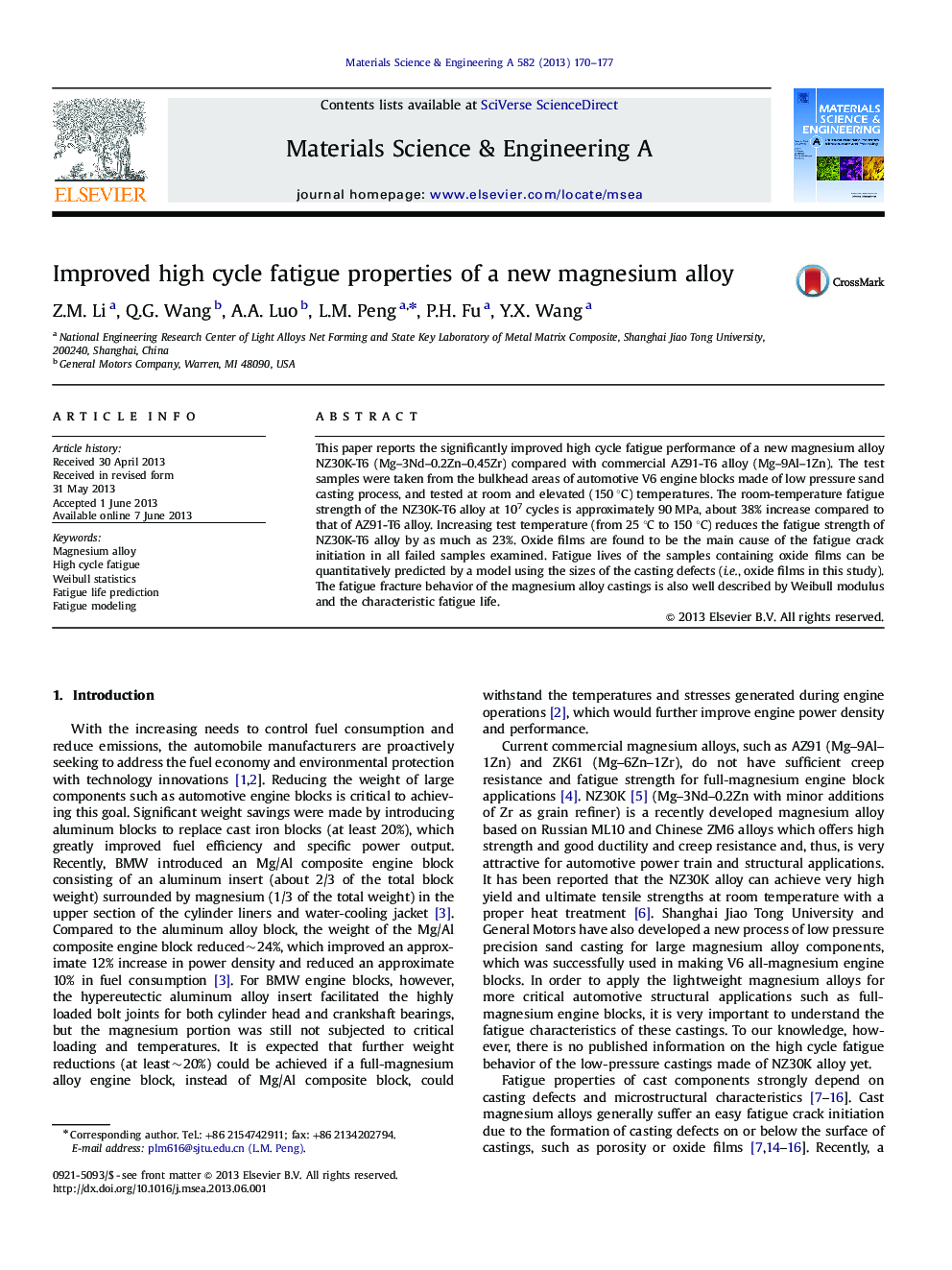| Article ID | Journal | Published Year | Pages | File Type |
|---|---|---|---|---|
| 1575963 | Materials Science and Engineering: A | 2013 | 8 Pages |
Abstract
This paper reports the significantly improved high cycle fatigue performance of a new magnesium alloy NZ30K-T6 (Mg-3Nd-0.2Zn-0.45Zr) compared with commercial AZ91-T6 alloy (Mg-9Al-1Zn). The test samples were taken from the bulkhead areas of automotive V6 engine blocks made of low pressure sand casting process, and tested at room and elevated (150 °C) temperatures. The room-temperature fatigue strength of the NZ30K-T6 alloy at 107 cycles is approximately 90 MPa, about 38% increase compared to that of AZ91-T6 alloy. Increasing test temperature (from 25 °C to 150 °C) reduces the fatigue strength of NZ30K-T6 alloy by as much as 23%. Oxide films are found to be the main cause of the fatigue crack initiation in all failed samples examined. Fatigue lives of the samples containing oxide films can be quantitatively predicted by a model using the sizes of the casting defects (i.e., oxide films in this study). The fatigue fracture behavior of the magnesium alloy castings is also well described by Weibull modulus and the characteristic fatigue life.
Related Topics
Physical Sciences and Engineering
Materials Science
Materials Science (General)
Authors
Z.M. Li, Q.G. Wang, A.A. Luo, L.M. Peng, P.H. Fu, Y.X. Wang,
